Dosense cable > News >
News
News
- How to Install AAC Conductor
- Power cable current carrying capacity
- Guide on Low Voltage Aerial Bundling Cables(ABC Cab
- Guide to Electrical Insulators
- The difference between 3 + 2 and 4 + 1 on wires and
- What are the cable accessories?
- AWG (American Wire Gauge) to MM2 Conversion
- Cable Short Circuit Current Calculate
- Overhead conductor,poles,and gold fittings design
- OPGW Cable Line Design Several Key Issues[2]
Contact us
E-Mail:info@dosensecable.com
Phone:+8613073786551
Tel:+8613073786551
Add:Zhengzhou, Henan,China
News
Guide to Electrical Insulators
Author:admin Release time:2023-08-12 14:45Click:
Guide to Electrical Insulators
I. Introduction
A. Electrical insulators are materials that prevent the flow of electric current and are crucial for maintaining safety and efficiency in electrical systems.
B. Electrical insulation plays a vital role in various applications by preventing electrical leakage, protecting equipment, and ensuring reliable power supply.
II. Types of Electrical Insulators
A. Ceramic Insulators
1.Ceramic insulators are made of non-metallic materials like porcelain or alumina ceramics, known for their excellent electrical and thermal insulating properties.
2.They are commonly used in power transmission lines, electrical substations, and high-voltage applications due to their high mechanical strength and resistance to extreme temperatures.
B. Glass Insulators
1.Glass insulators are made of glass materials that possess good insulating properties.
2.They were widely used in early power distribution systems and telecommunication lines.
3.Glass insulators are known for their aesthetic appeal and resistance to moisture, making them suitable for outdoor applications.
C. Polymer Insulators
1.Polymer insulators are made of composite materials such as reinforced fiberglass and silicone rubber.
2.They offer benefits such as low weight, high mechanical strength, and resistance to environmental factors like UV radiation and chemicals.
3.Polymer insulators find applications in industries like renewable energy, railways, and coastal areas where high pollution and humidity are prevalent.
III. Applications of Electrical Insulators
A. Power Transmission and Distribution
1.Electrical insulators are essential components of overhead power lines and electrical substations.
2.They prevent electricity from leaking to the ground and ensure reliable power transmission, even in adverse weather conditions.
B. Electrical Equipment and Appliances
1.Insulators are crucial in electrical devices and appliances to prevent short circuits and electrical shocks.
2.They are used in outlets, switches, transformers, and circuit breakers to ensure safe and efficient operation.
C. Electronics and Telecommunications
1.Insulators play a critical role in electronic circuits and telecommunications systems by preventing current leakage and signal interference.
2.They maintain signal integrity and prevent electrical noise, ensuring proper functioning of devices and efficient communication.
IV. Benefits and Advantages of Electrical Insulators
A. Insulation and Safety
1.Insulators protect against electrical shock hazards by preventing the flow of electric current.
2.They safeguard both equipment and personnel from potential electrical dangers.
B. Thermal and Environmental Resistance
1.Insulators can withstand high temperatures, making them suitable for applications where heat is generated.
2.They are also resistant to environmental conditions like moisture, chemicals, and UV radiation, ensuring long-lasting performance.
C. Electrical Efficiency
1.Insulators minimize energy loss by preventing current leakage and optimizing the efficiency of electrical systems.
2.They reduce power wastage, increase system performance, and contribute to overall energy savings.
V. Conclusion
A. Electrical insulators are essential components in various applications, providing insulation, safety, and efficiency in electrical systems.
B. Their diverse types and unique properties make them suitable for specific applications, ensuring reliable power transmission, equipment protection, and signal integrity.
- Previous:Guide on Low Voltage Aerial Bundling Cables(ABC Cable)
- Next:No
News
-
2023-10-02How to Install AAC Conductor
-
2023-08-30Power cable current carrying capacity
-
2023-08-12Guide to Electrical Insulators
-
2022-03-17What are the cable accessories?
Related Products





 info@dosensecable.com
info@dosensecable.com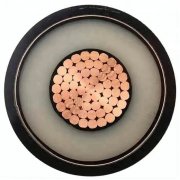
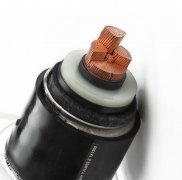
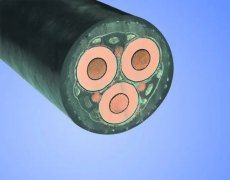
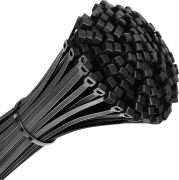
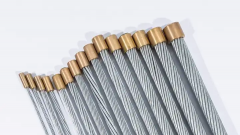
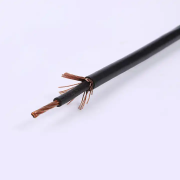
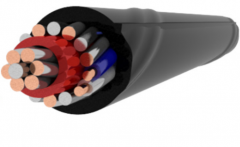
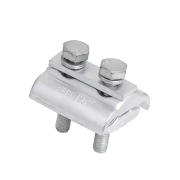

 Tel:
Tel:  Address: Zhengzhou, Henan,China
Address: Zhengzhou, Henan,China